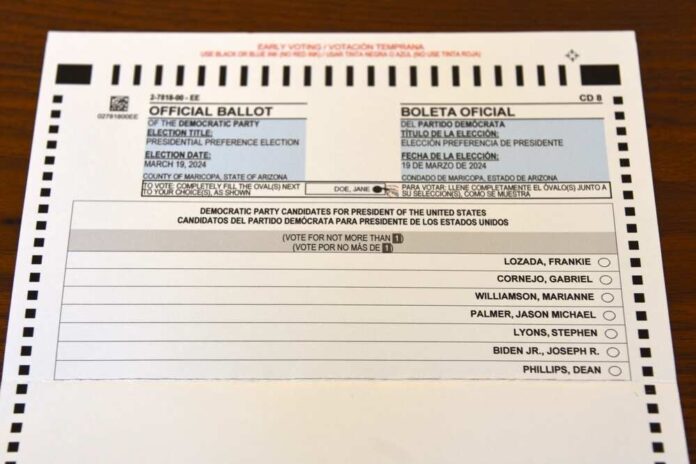
In a surprising development that could impact the 2024 presidential election, President Joe Biden may be excluded from the ballots in Alabama and Ohio due to a scheduling conflict between the Democratic National Convention (DNC) and these states’ candidate certification deadlines. This issue highlights the critical intersection of electoral procedures and party scheduling.
Alabama secretary of state says Biden may not appear on the state’s ballot because the DNC is after the registration deadline.
This is also the case in Ohio, where the DNC is being held days after the final date to sign up for the general election.
Follow: @AFpost pic.twitter.com/60a9fSullV
— AF Post (@AFpost) April 10, 2024
Alabama’s Secretary of State Wes Allen pointed out that the DNC, scheduled for August 19, 2024, occurs after Alabama’s deadline of August 15 for parties to submit their presidential and vice-presidential nominees. Consequently, this could result in Biden not appearing on the Alabama ballot, emphasizing the necessity of compliance with state electoral laws.
Similarly, Ohio faces a comparable challenge. Secretary of State Frank LaRose has indicated that the DNC’s late schedule could prevent Biden from meeting Ohio’s certification deadline for presidential candidates. The Ohio legislature is under pressure to either amend the law or devise an alternative by May 9, 2024, to accommodate the DNC’s timing.
This scheduling oversight could significantly affect the Democratic Party’s prospects in the 2024 presidential race, particularly in crucial states like Ohio. It underscores the importance of synchronization between national party events and state electoral requirements to ensure the seamless conduct of elections.
Since 'Ashley Biden' is trending: pic.twitter.com/NjwSI2i5mg
— Alabama Coastie (@AlabamaCoastie) April 4, 2024
Critics have suggested that this predicament could have been averted with more careful planning and communication between the DNC and state electoral offices. The unprecedented potential of excluding a sitting president from state ballots due to such a conflict raises serious questions about the DNC’s planning capabilities.
As the Democratic Party seeks solutions to this problem, the Republican Party is likely observing the situation closely, recognizing that any electoral advantage in key states could decisively influence a tight election. The resolution to this issue and any changes to convention dates or state legislation will be keenly watched by political observers and voters.
This situation presents a unique challenge for President Biden and the Democratic Party as the 2024 election approaches. Their response will not only affect their electoral strategy but also establish a precedent for how similar issues are handled in future electoral cycles. The scenario underscores the critical nature of detailed electoral planning and adherence to legal requirements to uphold the integrity of the democratic process.














